This morning on the grounds of the United States Capitol, ParentsTogether Action—ParentsTogether’s advocacy arm—held a moving event to advocate for U.S. families who are struggling in the midst of the coronavirus pandemic and an unprecedented economic downturn. The event marks the unveiling of a new campaign to raise awareness for the COVID generation, or “Gen C”—the kids growing up today who will feel the effects of the coronavirus, both economically and emotionally, for years to come. Gen C and their parents and caregivers are among the hardest hit by the pandemic.
ParentsTogether called upon their 2.5 million members for stories and artwork from their children, who are struggling to cope with the academic and social realities of quarantine. Their kids were asked to paint or draw how this crisis has been affecting them.
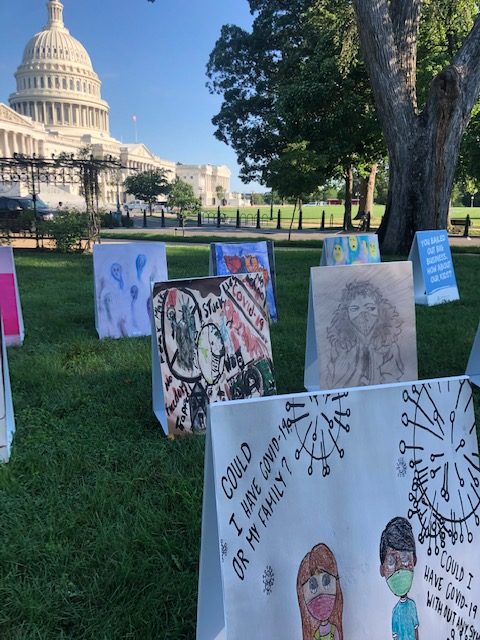
64 works of art from children across the country were selected to be put on display outside of Congress, alongside messages demanding action on COVID relief from lawmakers. Kids of all ages participated, some even as young as 3 and 4 years old, like Jaselyn from California. She drew a picture of her cousins, who she’s been missing since this crisis began.
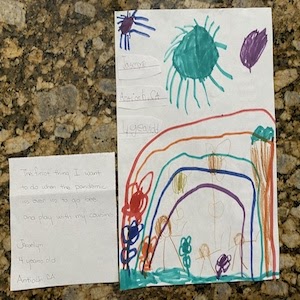
7-year-old Ellery from Cincinnati, Ohio explained that her drawing means that she wants the coronavirus to go, “so far away so that our family stays safe.”
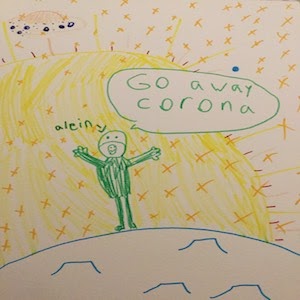
Kiran, a 10-year-old from Houston, Texas expressed lots of emotions with their artwork, especially frustration with the pandemic.

One of the groups experiencing unique hardships caused by the disruption of the pandemic is older teens, who are finishing high school or entering college. Nicole from Arizona is 17 years old and desperately misses her extracurricular activities, like playing violin in the school orchestra. For many teens, these types of activities are crucial to their wellbeing.
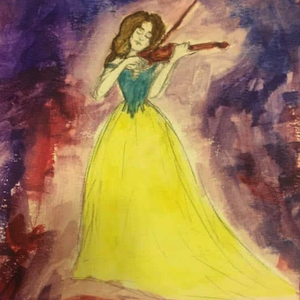
At just 15, Bryce from Davenport, Florida has already experienced some of the devastating health impacts of the virus firsthand. “Stay home and if you have to go out please wear a mask,” he pleads. “Being a survivor of COVID this virus is nasty and I don’t want to see anymore deaths.”
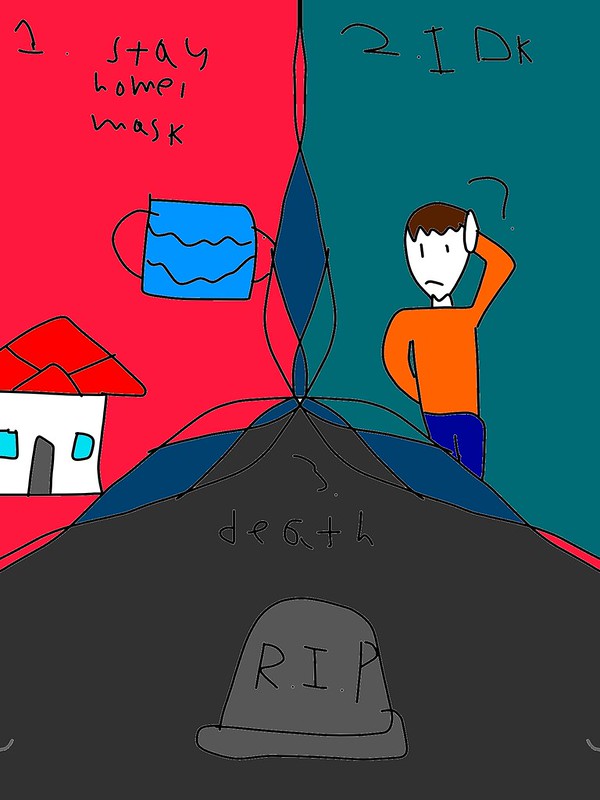
If you can’t make it to Capitol Hill, you can see all the powerful artwork and read the children’s tender, often heartbreaking stories online.
The organization’s event comes on the heels of the release of an open letter to Congress. The letter outlines the numerous harms children and their families are suffering while the newest COVID relief bill remains in limbo. The letter—signed by over ten thousand parents, educators, community leaders, as well as some celebrities like Patricia Arquette, Tisha Campbell and Alec Baldwin—makes several demands to Congress, including that they guarantee financial support, child care, and healthcare to all families, and double down on education funding.
Since the start of the pandemic, ParentsTogether Action has been communicating directly with families across the country to gauge what pain points and specific struggles parents and caregivers are wrestling with right now. Last week, The Guardian published an op-ed penned by the organization’s leaders—Ailen Arreaza, Bethany Robertson and Justin Ruben—which outlines their findings from various interviews and polls and provides a compelling case for quick and decisive COVID relief for families.
All of the evidence points to rapidly deepening socioeconomic divides, increased rates of mental health issues, and immense stress on working parents due to this virus and the economic recession it has instigated. ParentsTogether is advocating for immediate federal support for families—especially families of color and low-income families.

